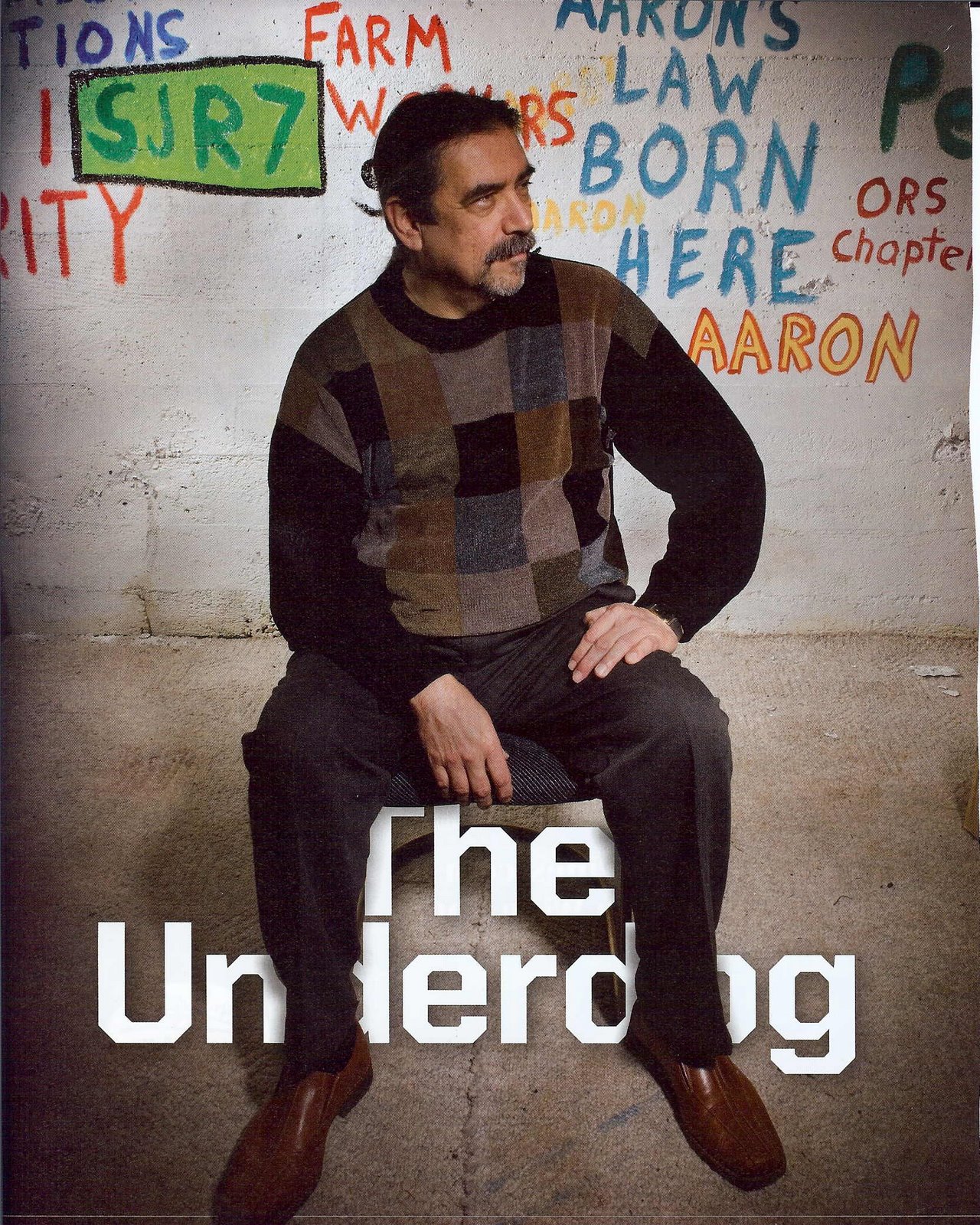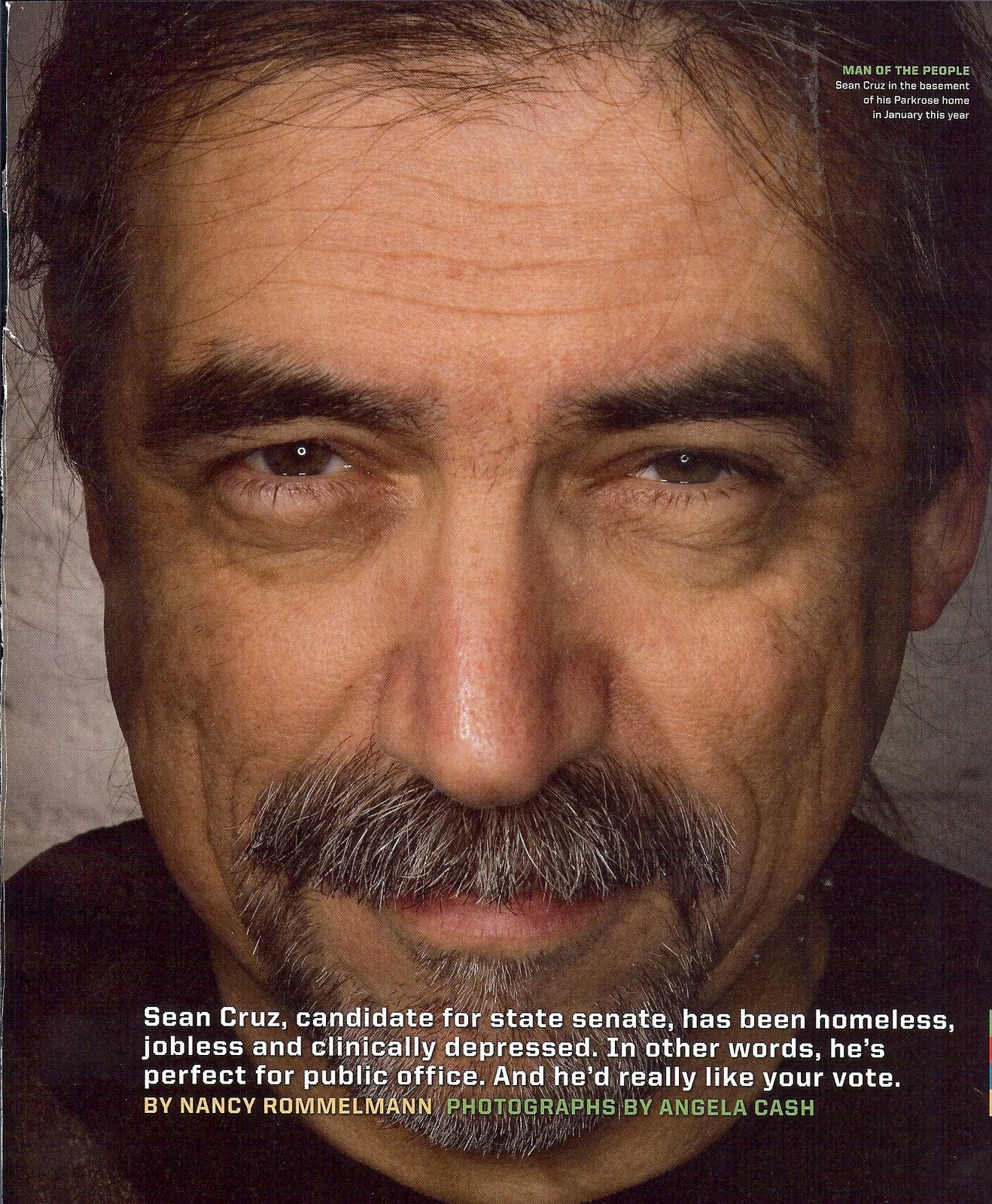Portland, Oregon--the debate sponsors requested a response to these questions:
The education system in the state of Oregon has been chronically underfunded.
Q1. What would be your approach to ensure adequate funding to:
Improve graduation rate
Achieve reading proficiency from age 3 (some specifics on early childhood education).
Narrow the achievement gap
And other ODE performance outcomes
Sean Cruz responds:
A. We have been working on this for years; the message from Senator Gordly’s office on the issue of adequate funding for education was consistent:
(1) recognize that all public budgets in Oregon are inadequate and unsustainable due to the structure of the revenue system itself;
(2) the issue is as much about stable funding as it is about adequate funding; and,
(3) it is the legislature’s responsibility to provide funding that meets the needs of Oregonians and of our State, as laid out in a mandate in Article IX, sections 2 and 6 of the Oregon Constitution that instructs the legislature to enact revenue reform.
This is not about making promises. I have been working directly on this issue since 2003 and am ready to lead the discussion on revenue reform.
I will prioritize 100% enrollment for pre-k eligible children, a battle Senator Gordly has fought for 16 years. In the 2003 session, from her seat on Joint Ways and Means, Senator Gordly single-handedly brought the entire budget process to a halt over pre-k funding, until they added $ 1M back into the pre-k budget.
With this election, you can decide to put Head Start on the back burner, or you can send me to Salem to fight for 100% pre-k enrollment.
If you want to increase the graduation rate, the most important thing you can do is to give every child hope.
The child shouldn’t have to worry about whether there will be band next year, or a chemistry class, or access to a doctor, or the next rung on the ladder to success. There are too many missing rungs, and for too many children, the ladder they see leads to a low-wage job, or the rungs are too far apart or nonexistent.
Our office has been the lone legislative voice in the wind on this issue for years.
American schools were different prior to the passage of Proposition 13 in California, before the rise of Ronald Reagan and his politics of selfishness and shortsightedness.
In those days, we counted on our investments in education. We did not take the future for granted.
We invested in public education in those days. Our parents and grandparents were counting on us to find the cures, invent the solutions, and create the art that would carry the nation into the future.
That is how you create hope and improve the graduation rate. You build the ladders to success, maintain them, strengthen them. That is the responsibility of the legislature, and it can only be achieved with comprehensive revenue reform and restructuring.
===========================
2nd education question:
The largest school districts in Oregon have not achieved a diverse workforce that reflects the student population of those districts. African American, Latino, Native American and other children of color are routinely assigned teachers or school administrators that are culturally unprepared to support these children’s’ academic achievement.
Q2. What could be done to support the professional development of teachers to ensure cultural competency
A. The most important and immediate thing that the Oregon legislature can do to ensure cultural competence in any area of the state is to become more culturally competent itself. This can only happen if its membership becomes more diverse.
Cultural competence is not an item you check off on a to-do list. The issue of cultural competence among the legislative body and across the state colored every bill, every issue we worked on in Avel Gordly’s office.
I can tell you that the question of cultural competence never arose in any endorsement interview that I encountered, not from any union, any advocacy group, including the education advocacy PACs. None of the interviewers themselves were people of color, with a single exception, no one but me.
You know what they say about minorities and people of color, they would love to include them, but they are too hard to find.
There have been many bills introduced in past legislatures to improve the cultural competency of teachers.
The two single largest obstacles to the professional development of cultural competency are (1) the opposition of the OEA, the teacher’s union, which has fought in the opposite direction of cultural competency in every session, and which uses its campaign contributions to influence legislators to support its agenda. You cannot both take their money and be immune from the pressure.
Case in point: Senator Gordly’s Expanded Options bill was the most significant educational achievement of the 2003 session, the result of more than a decade of her hard work, opening access to higher education to those students who are discouraged at their prospects, at risk of dropping out of high school or have already dropped out, students facing ladders missing too many rungs, or with no ladders, or with no support at home, or who are homeless themselves.
The OEA has been cutting back Senator Gordly’s achievement ever since, with the help of legislators whose campaigns they fund. They are supporting my opponent. The choice is yours.
I hope that in the next election cycle—if not this one—you don’t let them get away with that.
(2) The other obstacle is the quality of training in Oregon’s schools of education, badly in need of reform and updating. There is a great deal of institutional friction in the system. The Oregon Senate needs a champion who understands what cultural competence is, from the inside out.
The Senate stands on the brink of taking a drastic cut in cultural competence, and the House hasn’t had an African American member in nearly a decade.
The House Democratic caucus has no minority members. Cyreena Boston would be at the same time the youngest member of the House and the Dean and sole member of the House Democratic People of Color Caucus, if they had one. (Except for Chip Shields, he’d be in there with her).
Ten per cent of Oregon’s population claims Hispanic or Latino origins, and they have no voice in either caucus or either chamber. That is fine with a lot of people, but it is neither right nor just, and it leads in the opposite direction of cultural competence.
Every person in this room has a heart for justice. I know many of you personally. But where is the justice in that?
The Senate Democratic caucus in 2009 will either have one person of color member out of 18, Senator Margaret Carter, or two, if you send me there.
As the state becomes more diverse, should its Senate become less so?
I bring some badly needed cultural competence to the discussion, particularly regarding people like myself, of Mexican ancestry, which is what the immigration issue is all about, not about our Latino or Hispanic cousins, but specifically about the experience of Mexicans in the United States.
The debate should begin with a focus in four areas central to any real understanding of the problem:
(1) the unique experience of people of Mexican ancestry in the U.S.;
(2) the experience unique to Mexico of being the next door neighbor (“Poor Mexico,” the saying goes, “So far from God, so close to the United States”);
(3) The 19th century U.S. invasion of Mexico; and,
(4) the economic and moral consequences of 500 years of exploitation, first by the Europeans, then by the U.S., and always by the corporations, that drive the migration of the poor right up to the U.S. border.
People of ill will want to blame the grains of sand for being washed up on the beach.
It is far easier than dealing with the currents and tides that put them there.
Cultural incompetence case in point was the Interstate Avenue renaming debacle.
My opponent and I were on opposite sides of the issue.
See for yourself here: http://www.cesarechavezboulevard.com/letters.pdf
Some people are still angry with me over it, have been working for a year to harpoon my campaign, but I earned the respect of many others, including faculty members of Portland State’s Chicano and Latino Studies Department.
Someday, a forensic scientist will match the still-secret list of Interstate Avenue Committee members with the list of my opponent's supporters and will understand a great deal of what has been going on behind the scenes in this campaign for Senate District 23.
I say this: You do not bring honor to a person by stripping away his cultural identity, and Cesar Chavez was the product of the experience unique to people of Mexican ancestry living in the United States. It was the price he paid as a Mexican American, a Chicano, that made him what he became.
TEACHABLE MOMENT: All Chicanos are Mexican American, but not all Mexican Americans are Chicanos. You can always tell who the Chicanos are. We are the warrior class, activists to the bone.
It drives the Latinos and Hispanics crazy sometimes, especially those contract-seeking, grant-protecting, sugar-pecha sucking hypocrites who are reading this and know I am talking to them.
The Hispanic Metropolitan Chamber of Commerce never takes a stand on anything at all.
That’s how you know there are no Chicanos down there.
The Interstate fiasco did nothing to educate the community at large about why Cesar Chavez is important. He was a civil rights leader, something about a grape boycott and farmworkers...Let’s call him a real American! Put his name on some street signs, a vista of crosswalks and fire hydrants, Taco Bell on the corner….
The fact is the short hoe, el cortito, ruined the backs of millions of Mexican farm workers for many decades, including Cesar Chavez'. But it wasn’t used much in Oregon.
If you do not understand the short hoe, then you have not begun to honor Cesar Chavez. (See Short Hoe, below)
Issues like this play out every day in the legislature, health disparities, wherever there are people….
Our Central and South American Latino and Hispanic cousins meant well, but cannot claim to own the franchise on honoring one of our greatest Mexican American heroes, particularly not with a committee whose membership is secret, and who in no place describe him as what he was, a Mexican American, Chicano hero.
Someday a forensic social scientist will uncover the secret list of Interstate Avenue Renaming Committee members...I will get to this in a later post....
I am still openly welcoming a tribute to Cesar Chavez in my own neighborhood, like it or not.
This Teachable Moment has been brought to you by Sean Cruz, Mexican American, Chicano Sean Cruz.
The Short Hoe
For Cesar Chavez, who played a pivotal role in the long drama, there were few greater moments than when el cortito was finally banished from California’s fields in 1975.
In his youth, Chavez knew the hoe well, having used it to thin countless rows of lettuce and to weed sugar-beet fields along the Sacramento River.
Later he would say he never looked at a head of lettuce in a market without thinking of how laborers had suffered for it from seed to harvest….
www.pbs.org/itvs/fightfields/book1.html
The Struggle for the Health and Legal Protection of Farm Workers: el cortito
http://marjoriecohn.com/2005/01/struggle-for-health-and-legal.html
California to Ban Practice of Forcing Farm Workers to Weed by Hand
From: THE AGRIBUSINESS EXAMINER
http://www.organicconsumers.org/organic/weeding092704.cfm
Stoop Labor in Salinas, California
http://www.objectofhistory.org/objects/brieftour/shorthandledhoe/
Tribute to the creator of the short hoe memorialized (welcome to the Twilight Zone)http://www.cwss.org/hoe.htm
The Short Handled Hoe
In Memory of W. W. ROBBINS
Presented by Walter Ball
There are times in the history of any organization when the members should pause and re-examine the reasons for existence of the organization, the purposes of the organization, and the goals toward which it is striving. And there are times for remembering those who were responsible for the organization’s inception, and for its program and achievements.
We are taking a bit of time today to honor such a man, and to establish a tradition which we hope will keep his memory ever fresh.
Dr. W. W. Robbins was a great teacher at whose feet many present had the pleasure to study. Dr. Robbins was interested in research, and he did experimental work himself and inspired others to do it.
Dr. Robbins was dedicated to the science of the growing of plants and to the control of weeds. And in this dedication he kept his feet on the ground. He recommended the use of every possible tool in the preparation of the land and the eradication of the pests.
In his many talks before farmers he often would bring out the hoe and display it as the time honored tool; that even in this day of magic chemicals, was still the major weapon in the fight against weeds.
This hoe which I bring here today was given to Dr. Robbins by the California Weed Conference in 1951 in honor of his many contributions to this organization. After his passing, his wife, Barbara, gave it to me to keep in his memory.
Recently, it occurred to me that among these many friends, and friends of friends of Dr. Robbins, that I should not covet this memorial but should share it with all of you who attend this Conference and with those of you who still remember Doc Robbins.
Therefore, I am presenting this hoe to the California Weed Conference to be held in perpetual memory of Dr. W. W. Robbins – and to pass from Chairman to Chairman at each annual meeting.
May this humble tool serve as a lasting symbol of the dedication and service which Doc Robbins gave to this organization and to the science of weed control.
-------------
Note from Sean Cruz: I did not make any of this up.
Subscribe to:
Post Comments (Atom)






No comments:
Post a Comment